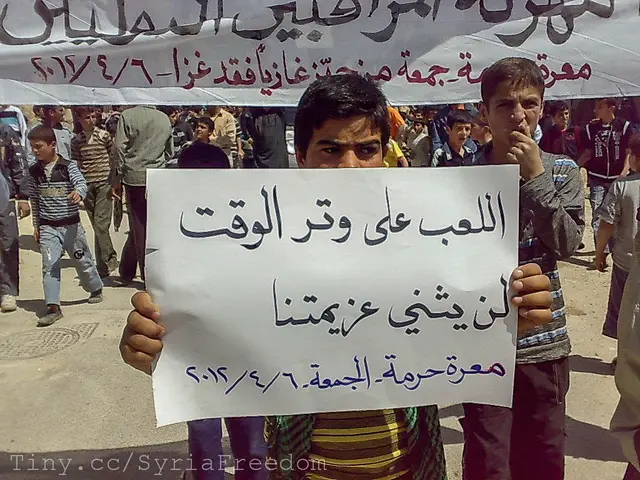Forcing apologies on young children might not be the most effective approach. Try this alternative approach instead: Encourage them to recognize and express their emotions, followed by teaching them empathy and restitution.
In the journey of raising children, instilling empathy and understanding is a crucial part of their development. One aspect that often requires focus is teaching children the importance and the right way to apologize.
Parents play a significant role in this learning process. Instead of simply insisting that children say "sorry," it's essential to help them comprehend the impact of their actions and foster genuine empathy. Forcing apologies can lead to insincere expressions and missed opportunities for teaching accountability and respect.
Effective strategies for teaching children to apologize meaningfully include modeling apologies oneself, helping children recognise the harm caused by their behaviour, teaching the components of a meaningful apology, and encouraging children to correct their mistakes personally.
By modelling apologies, parents demonstrate intentional leadership and show that apologizing is a strength rather than a weakness. This approach helps children understand that apologies are an essential part of taking responsibility for one's actions.
Recognising the harm caused by their behaviour helps children see why an apology matters beyond just the words. It allows them to understand the emotional impact of their actions on others and fosters a deeper sense of empathy.
Teaching the components of a meaningful apology typically involves acknowledging wrongdoing, expressing remorse, making amends, and committing to do better next time. This structured approach provides children with a blueprint for expressing genuine remorse and taking responsibility for their actions.
Encouraging children to correct their mistakes personally, rather than just verbally apologizing, deepens their understanding of responsibility. It helps them realise that apologizing is not just about saying the words, but about making amends and changing their behaviour for the better.
This approach fosters emotional intelligence and accountability and avoids the pitfall of children learning to apologize just to stop the conflict quickly or to avoid consequences. It encourages them to take responsibility for their actions and learn from their mistakes.
In addition, praising and rewarding good behaviour can motivate children to continue with such actions and encourage understanding of good and bad behaviour. By saying sorry when they have done something wrong, parents can demonstrate the importance of apologizing.
It's also important to remember that children learn from their parents' behaviour. Parents should model appropriate behaviour, including apologizing when necessary. Toddlers, who often have tantrums and may not listen to discipline techniques, can still learn from observing their parents' behaviour.
Child development experts do not recommend forcing children to apologize. Instead, they suggest guiding children through the process of understanding their actions, the impact of those actions, and the importance of apologizing sincerely.
Lastly, it's worth noting that parents should not hesitate to say sorry if they have done something wrong. Children learn from their parents' behaviour, and admitting and apologizing for mistakes sets a powerful example of accountability and honesty.
In conclusion, teaching children to apologize meaningfully is an essential part of their development. By modelling apologies, helping children recognise the harm caused by their behaviour, teaching the components of a meaningful apology, and encouraging children to correct their mistakes personally, parents can foster emotional intelligence, accountability, and empathy in their children.
Read also:
- Overcoming Yielding Regulations Hurdles in Indian Export Sector for EU Markets
- Shaping production and consumption tendencies via cosmetic certification
- Health care professionals targeted in a shooting incidents, a pattern of hostile actions against health workers continues to unfold, with many observing this trend as unremarkable.
- Transgender individuals' journey towards aligning their gender identity: Key aspects








